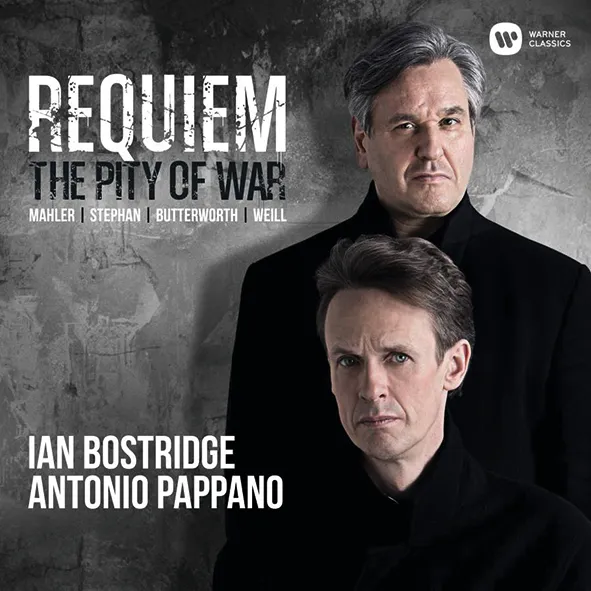
Requiem: The Pity of War Butterworth: A Shropshire Lad; Kurt Weill: Four Walt Whitman Songs; Mahler: Des Knaben Wunderhorn – ‘Wo die schönen Trompeten blasen’, ‘Revelge’, ‘Der Tamboursg’sell’; Stephan: Ich will dir singen ein Hohelied Ian Bostridge (tenor), Antonio Pappano (piano) Warner Classics 9029566156 54:17 mins
This recital unites four figures closely associated with the World Wars. George Butterworth and Rudi Stephan died young in World War I; the Kurt Weill songs were written during the 1940s; and Gustav Mahler’s late-Romantic style distils the precarious, tragic magnificence which preceded these decades of bloodshed.
Butterworth’s settings from A Shropshire Lad are given a moving treatment with a flexible approach to tempo. Even ‘Is my team ploughing’, which can easily slip into absurdity, has dignity and pathos. Stephan’s six songs, dating from 1913-15 (a year before his death, aged 28) are fascinating settings of poetry by Gerda von Robertus. Although quite brief, the songs offer plenty of stylistic variety, including lyric tenderness, vigour, and expressionist luxuriance. The dramatic, occasionally rhapsodic Whitman settings by Weill offer a complete contrast, the violence of ‘Beat! Beat! Drums!’ jolting us out of Stephan’s sweet torpor. The closing Mahler songs from Des Knaben Wunderhorn can be shockingly ugly (and rightly so), but I wiped away a tear in ‘Wo die schönen Trompeten blasen’. Ian Bostridge’s singing is impressively mercurial, ranging from sweetly tender to harshly aggressive, with a surprising baritonal edge, and crystal-clear text. Antonio Pappano’s unsentimental accompaniment, richly replete with orchestral sonorities but never overpowering, reveals his vast experience of working with voice and orchestra. Although drawn from a relatively brief span of history, this recital offers a kaleidoscopic and thought-provoking range of responses to the pity, waste and horror of war.
Natasha Loges